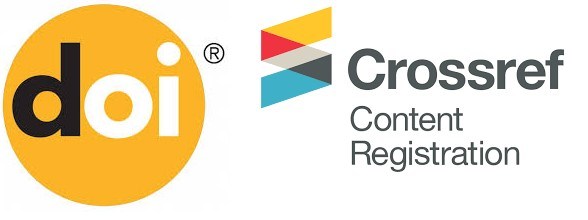Looking at the learning of algebra among Kindergarten and early elementary school children through the lens of notational systems
DOI:
https://doi.org/10.46219/rechiem.v16i1.160Keywords:
Early elementary, Kindergarten, Representations, Arithmetic, AlgebraAbstract
From the perspective of research in early algebra, the goal of this paper is to share evidence about Kindergarten and early elementary school children’s capacity to work with algebraic notation and to represent indeterminate quantities. This evidence is presented in contrast to the difficulties documented among adolescents in previous studies. Younger children’s capacities to interact with concepts and representations that were considered to be difficult for adolescents emphasizes the importance of the type and quality of teaching that are designed in schools.Downloads
References
Bednarz, N. (2001). A problem-solving approach to algebra: Accounting for the reasonings and notations developed by students. En H. Chick, K. Stacey, J. Vincent y J. Vincent (Eds.), The future of the teaching and learning of algebra. Proceedings of the 12th ICMI Study Conference, 1 (pp. 69-78). University of Melbourne.
Bednarz, N., y Janvier, B. (1996). Emergence and development of algebra as a problem solving tool: Continuities and discontinuities with arithmetic. En N. Bednarz, C. Kieran y L. Lee (Eds.), Approaches to algebra: Perspectives for research and teaching (pp. 115-136). Kluwer. https://doi.org/10.1007/978-94-009-1732-3_8
Blanton, M., Brizuela, B. M., Gardiner, A. M., Sawrey, K., y Newman-Owens, A. (2017). A Progression in First-Grade Children’s Thinking About Variable and Variable Notation in Functional Relationships. Educational Studies in Mathematics, 95, 181-202. https://doi.org/10.1007/s10649-016-9745-0
Blanton, M., Levi, L., Crites, T., y Dougherty, B. (2011). Developing essential understanding of algebraic thinking for teaching mathematics in Grades 3-5. National Council of Teachers of Mathematics, NCTM.
Blanton, M., Stroud, R., Stephens, A., Gardiner, A. M., Stylianou, D. A., Knuth, E., Isler-Baykal, I., y Strachota, S. (2019). Does early algebra matter? The effectiveness of an early algebra intervention in Grades 3 to 5. American Educational Research Journal, 56(5), 1930-1972. https://doi.org/10.3102/0002831219832301
Booth, L. (1984). Algebra: Children’s strategies and errors. NFER-Nelson.
Brizuela, B. M. (2016). Variables in Elementary Mathematics Education. Elementary School Journal, 117(1), 46-71. https://doi.org/10.1086/687810
Brizuela, B. M. (2023). ¿Qué nos enseñan los niños en niveles parvulario y básico sobre el aprendizaje del álgebra? Una mirada desde los sistemas notacionales. En J. L. Piñeiro, N. Pizarro y E. Carrasco (Eds.), Actas de las XXVII Jornadas Nacionales de Educación Matemática (pp. 16-23). Fondo Editorial UMCE.
Brizuela, B. M., Blanton, M., Gardiner, A. M., Newman-Owens, A., y Sawrey, K. (2015). A first grade student’s exploration of variable and variable notation / Una alumna de primer grado explora las variables y su notación. Estudios de Psicología: Studies in Psychology, 36(1), 138-165. https://doi.org/10.1080/02109395.2014.1000027
Brizuela, B. M., Blanton, M., Sawrey, K., Newman-Owens, A., y Gardiner, A. M. (2015). Children’s use of variables and variable notation to represent their algebraic ideas. Mathematical Thinking and Learning, 17, 1-30. https://doi.org/10.1080/10986065.2015.981939
Brizuela, B. M., Martinez, M. V., y Cayton-Hodges, G. A. (2013). The impact of early algebra: Results from a longitudinal intervention. Journal of Research in Mathematics Education/Revista de Investigación en Didáctica de las Matemáticas (REDIMAT), 2(2), 209-241. https://doi.org/10.4471/redimat.2013.28
Carraher, D. W., y Schliemann, A. D. (2007). Early algebra and algebraic reasoning. En F. Lester (Ed.), Handbook of research in mathematics education (pp. 669-705). Information Age.
Carraher, D. W., Schliemann, A. D., Brizuela, B. M., y Earnest, D. (2006). Arithmetic and algebra in early mathematics education. Journal for Research in Mathematics Education, 37(2), 87-115.
Carraher, D. W., Schliemann, A. D., y Schwartz, J. (2008). Early algebra is not the same as algebra early. En J. Kaput, D. W. Carraher, y M. Blanton (Eds.), Algebra in the early grades (pp. 235-272). Erlbaum. https://doi.org/10.4324/9781315097435-12
Cobb, P., Confrey, J., diSessa, A., Lehrer, R., y Schauble, L. (2003). Design experiments in educational research. Educational Researcher, 32(1), 9-13. https://doi.org/10.3102/0013189X032001009
Filloy, E., y Rojano, T. (1989). Solving equations: The transition from arithmetic to algebra. For the Learning of Mathematics, 9(2), 19-25.
Kaput, J. (2008). What is algebra? What is algebraic reasoning? En J. Kaput, D. W. Carraher y M. Blanton (Eds.), Algebra in the early grades (pp. 5-17). Lawrence Erlbaum Associates/Taylor & Francis Group. https://doi.org/10.4324/9781315097435-2
Kaput, J., Carraher, D., y Blanton, M. (Eds). (2008). Algebra in the early grades. Lawrence Erlbaum Associates/Taylor & Francis Group.
Kelly, A. (Ed.). (2003). The role of design in educational research (Special Issue). Educational Researcher 32(1), 3-37. https://doi.org/10.3102/0013189X032001003
Knuth, E. J., Alibali, M. W., McNeil, N. M., Weinberg, A., y Stephens, A. C. (2011). Middle school students’ understanding of core algebraic concepts: Equivalence and variable. En J. Cai y E. Knuth (Eds.), Early algebraization: A global dialogue from multiple perspectives. Advances in Mathematics Education Monograph Series (pp. 259-276). Springer. https://doi.org/10.1007/978-3-642-17735-4_15
Küchemann, D. E. (1981). Algebra. En K. Hart (Ed.), Children’s understanding of mathematics (pp. 102-119). Murray.
MacGregor, M., y Stacey, K. (1997). Students’ understanding of algebraic notation: 11-15. Educational Studies in Mathematics, 33(1), 1-19. https://doi.org/10.1023/A:1002970913563
Moses, R., y Cobb, C. (2001). Radical equations: Math literacy and civil rights. Beacon Press.
Radford, L. (2011). Grade 2 students’ non-symbolic algebraic thinking. En J. Cai y E. Knuth (Eds.), Early algebraization: A global dialogue from multiple perspectives (pp. 303-322). Advances in Mathematics Education Monograph Series. Springer. https://doi.org/10.1007/978-3-642-17735-4_17
Schliemann, A. D., Carraher, D., y Brizuela, B. M. (2011). El carácter algebraico de la aritmética: de las ideas de los niños a las actividades en el aula. Editorial Paidós.
Schliemann, A. D., Carraher, D. W., y Brizuela, B. M. (2012). Algebra in elementary school. En L. Coulange, J.-P. Drouhard, J.-L. Dorier y A. Robert (Eds.), Recherches en Didactique des Mathématiques, Numéro spécial hors-série, Enseignement de l’algèbre élémentaire: bilan et perspectives (pp. 103-118). La Pensée Sauvage.
Steinberg, R., Sleeman, D., y Ktorza, D. (1990). Algebra students’ knowledge of equivalence of equations. Journal for Research in Mathematics Education, 22(2), 112-121. https://doi.org/10.2307/749588
Downloads
Published
How to Cite
Issue
Section
License
Copyright (c) 2024 Chilean Journal of Mathematics Education

This work is licensed under a Creative Commons Attribution 4.0 International License.











